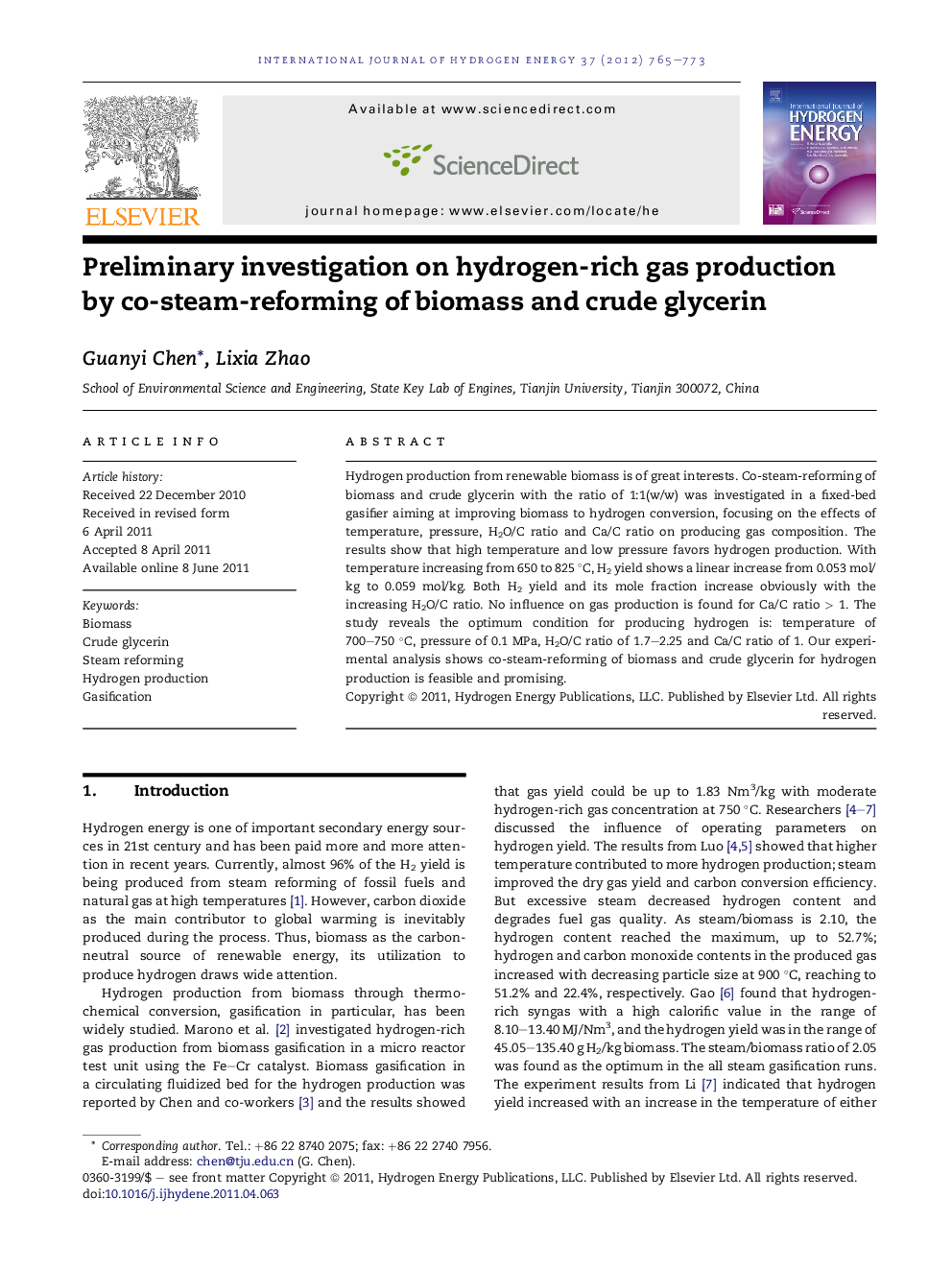| Article ID | Journal | Published Year | Pages | File Type |
|---|---|---|---|---|
| 1277194 | International Journal of Hydrogen Energy | 2012 | 9 Pages |
Hydrogen production from renewable biomass is of great interests. Co-steam-reforming of biomass and crude glycerin with the ratio of 1:1(w/w) was investigated in a fixed-bed gasifier aiming at improving biomass to hydrogen conversion, focusing on the effects of temperature, pressure, H2O/C ratio and Ca/C ratio on producing gas composition. The results show that high temperature and low pressure favors hydrogen production. With temperature increasing from 650 to 825 °C, H2 yield shows a linear increase from 0.053 mol/kg to 0.059 mol/kg. Both H2 yield and its mole fraction increase obviously with the increasing H2O/C ratio. No influence on gas production is found for Ca/C ratio > 1. The study reveals the optimum condition for producing hydrogen is: temperature of 700–750 °C, pressure of 0.1 MPa, H2O/C ratio of 1.7–2.25 and Ca/C ratio of 1. Our experimental analysis shows co-steam-reforming of biomass and crude glycerin for hydrogen production is feasible and promising.
► H2 production from co-gasification of biomass (corn cob) and crude glycerin has been studied. ► Reactor configuration is steam gasification followed by reforming over Ni-Ca/Al2O3. ► Effects of temperature, pressure, H2O/C ratio and Ca/C ratio have been investigated. ► High temperature, high H2O/C ratio, and low pressure favor H2 production. ► Optimum gasification condition is 700–750 °C, 0.1 MPa, H2O/C = 1.7–2.25, and Ca/C = 1.
